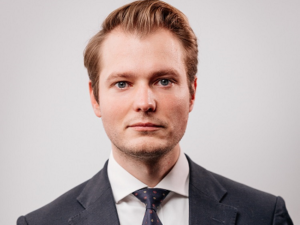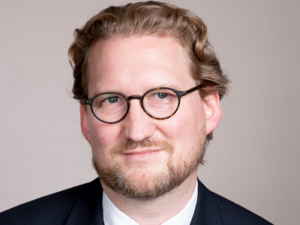Xarelto case: patient information not state of the art
Munich Regional Court and Oslo District Court have ruled on interesting legal details in what is currently the most hotly contested pan-European pharmaceutical case, concerning Bayer's blockbuster drug Xarelto. Patient information cannot be regarded as state of the art.
13 September 2024 by Christina Schulze
When Munich Regional Court and Oslo District Court decided on the preliminary injunctions against a total of nine generics manufacturers this summer, Bayer must have breathed a sigh of relief. The courts upheld all injunctions in favour of the originator. Xarelto is currently the ailing pharmaceutical company’s most important blockbuster in terms of sales.
From a legal standpoint, the discussion about patient information is interesting. Usually, it plays no role in patent proceedings, but in this economically significant case the generics companies dug deep to obtain and submit the information from the hospitals involved in the clinical trial.
Patient information is a document that healthcare professionals present to patients participating in clinical trials. It gives patients an idea of what to expect before they agree to take part. It therefore always contains information about the drug in question.
In the case of Xarelto, the information relating to patent EP 1 845 961, which the company filed later, was particularly obvious. The document informed patients that they would receive one tablet once a day. The disputed patent refers to the fact that the drug rivaroxaban only has to be taken once a day and not twice, like competing products. The generics companies therefore argued that, due to the patient information, this invention had already become public and state of the art. However, the courts did not follow this argument.
Not confidential but not public knowledge
Patient information is necessary within clinical research in order to educate patients. At the same time, patients must not be obliged to maintain confidentiality, as they must have the opportunity to discuss their participation in the study with close confidants. However, the two courts did not consider the patient information to be public knowledge, as it was only accessible to a limited circle. They also argued that it did not include how promising and effective the single dose was. The purpose of these studies is precisely to test the efficacy and tolerability of the medication.
Surprisingly, the judgments from the UK and France — in both countries the courts revoked the patent — played no role in these PI proceedings and were only briefly mentioned in the hearings.
Although Munich Regional Court came to the same decision in all PI proceedings, the court took a long time to publish its reasoning, despite the high costs per day for Xarelto.
On 5 December, Munich Higher Regional Court will hear Bayer’s appeal against the Informationsstelle für Arzneispezifitäten (IFA, an information service provider for the pharmaceutical market). Bayer had sued the IFA to prevent the generics from being listed. Listing by the IFA is a prerequisite for market entry in Germany. Bayer was only partially successful in the first instance and therefore had to also initiate all PI proceedings.
Advisors remain the same
The companies involved have relied on their regular advisors since the dispute began. In the hearing in Munich in June 2024, Bayer defended the PIs with a lawyer team from A&O Shearman led by Stephan Neuhaus.
- Stephan Neuhaus
- Natalie Kirchhofer
- Arwed Burrichter
The team also included patent attorneys from Cohausz & Florack led by Natalie Kirchhofer and Arwed Burrichter.
At the Oslo Discrict Court, Eirik Johan Basmo Ellingsen of Bahr represented Bayer. Glenmark worked with Anne Marie Sejersted of Wiersholm and Sandoz with Vebjørn Krag Iversen of Haavind (case IDs: 24-093228TVI-TOSL/08 and 24-104702TVI-TOSl/08).
Accord, betapharm and 089 Pharm filed the appeals against the PIs with different teams from the same law firm. While Hamburg-based Preu Bohlig partner Daniel Hoppe is representing Accord, betapharm is relying on Hamburg-based partner Carl-Alexander Dinges.
- Carl Alexander Dinges
- Konstantin Schallmoser
Paris-based Preu Bohlig partner Konstantin Schallmoser is representing 089 Pharm together with the patent attorney firm Hamm & Wittkopp in Hamburg.
Zentiva relies on Cordula Schumacher, Lisa Rieth from Arnold Ruess, and patent attorney Robin Ellis from Reddie & Grose.
- Cordula Schumacher
- Oliver Jüngst
- Jan Phillip Rektorschek
Ratiopharm and AbZ-Pharma rely on a team from Bird & Bird, including Oliver Jüngst, counsel Annika Lückemann and patent attorney Anne Halbach.
Taylor Wessing’s Jan Phillip Rektorschek and patent attorney Thomas Kernebeck are representing Stadapharm.







